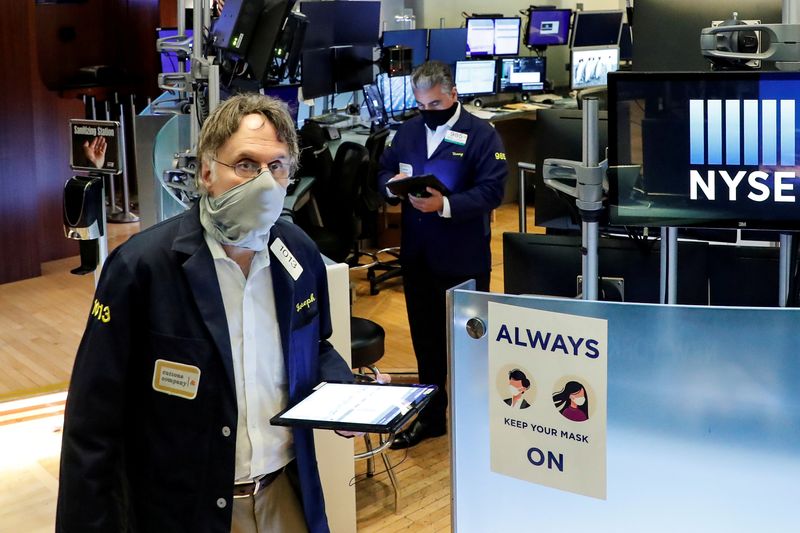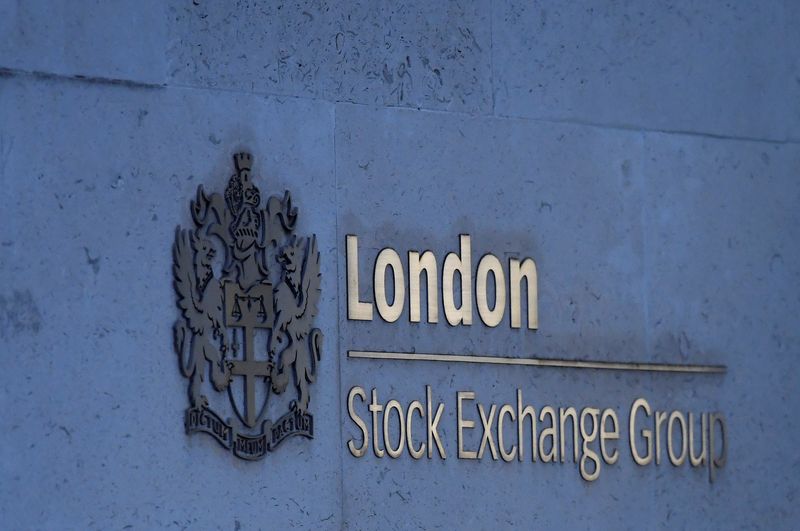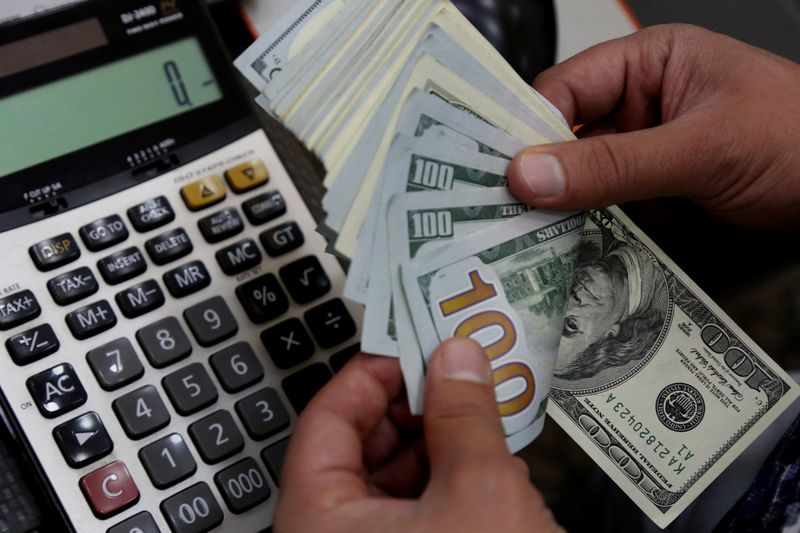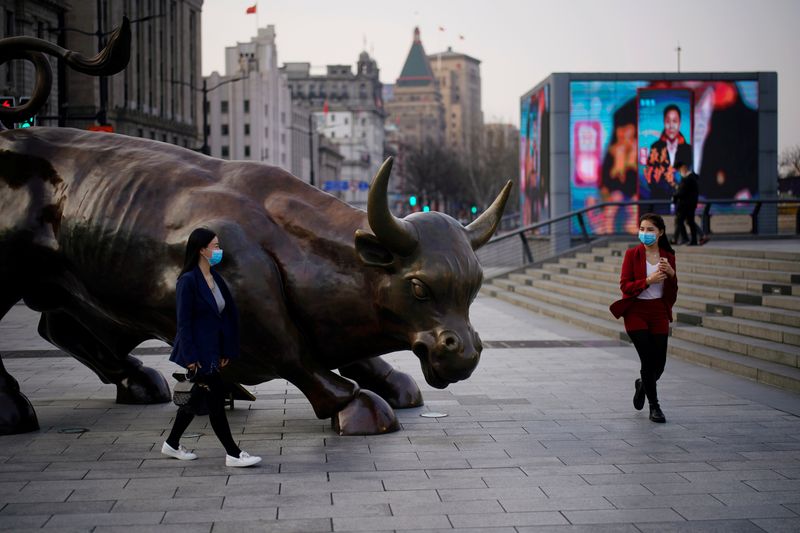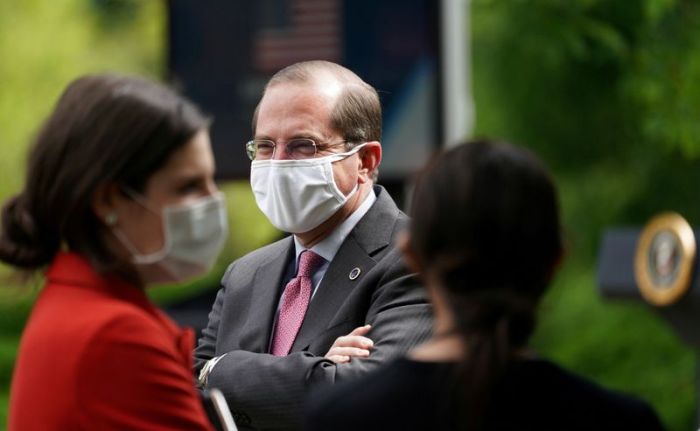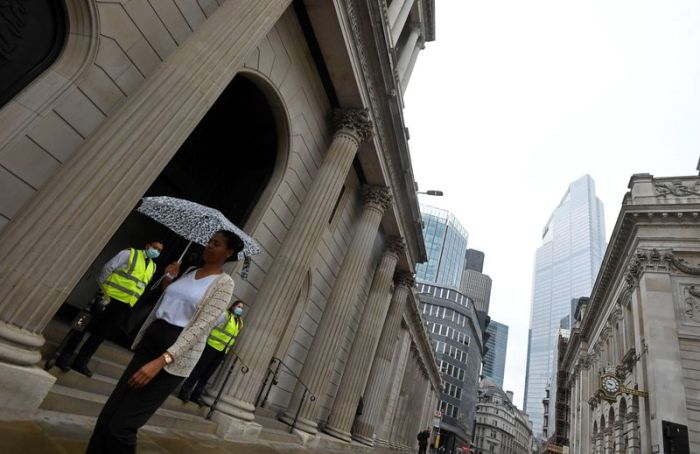NEW YORK (Reuters) – Global equity markets edged higher and bond yields eased off earlier lows on Thursday as investors awaited word on a new U.S. aid package to counter economic fallout from the coronavirus crisis.
Safe-haven gold extended its record-breaking run, driven by expectations of more stimulus, while the dollar initially gained after data showed fewer Americans sought jobless benefits last week. Gold has been rising on concerns stimulus will fuel inflation and erode the value of the dollar.
Initial claims for state unemployment benefits fell 249,000 to a seasonally adjusted 1.186 million for the week ended Aug. 1, the U.S. Labor Department said, the lowest reading since mid-March.
Revised data for June showing payrolls jumped by 4.314 million jobs instead of adding 2.369 million as previously estimated cheered investors who see a stronger economy than those who fear the economic impact of a surge in COVID-19 cases.
A proper economic recovery is still far away, said Jeffrey Christian, managing partner of CPM Group.
“There are mixed signals that the economy is recovering and some of the signs of recovery are relatively superficial as they show aggregate figures and not how medium and small enterprises continue to suffer,” Christian said.
More than 1 million initial claims a week is not desirable if you think the economy is recovering, said Yousef Abbasi, global market strategist at StoneX Group Inc in New York. The report, he said, supports the need for stimulus.
“It puts us right where the Fed wants to be, right where you’d want to be, if you’re thinking Washington needs to get stimulus done,” Abbasi said. “You don’t want them to be too encouraged by better data to slow their approach.”
Republicans and Democrats remained far apart about what to include in another wave of relief after nearly two weeks of talks on next steps to address a crisis that has killed more than 157,000 Americans and thrown tens of millions out of work.
The relief bill should be more targeted than the first to preserve ammunition if another shutdown should require further aid, former Reserve Bank of India Governor Raghuram Rajan told the Reuters Global Markets Forum on Wednesday.
The major U.S. stock indices traded little changed, but bourses in Europe fell as a three-day rally ran out of steam.
The pan-European STOXX 600 fell 0.73% and London’s FTSE 100 closed down 1.27%, pulled lower after Glencore scrapped its dividend. Europe’s mining index fell 2.45%.
The Dow Jones Industrial Average rose 0.68% and the S&P 500 gained 0.64%, off just over 1% from a new all-time peak. The Nasdaq Composite added 1%, marking the fourth straight day of record peaks and closing highs as the tech-heavy index ended the session above 11,000 for the first time.
MSCI’s benchmark for global equity markets rose 0.23% to 565.38.
Treasury yields fell, with the 10-year note sliding to 0.504% at one point, its lowest ever after a big down spike on March 9. The benchmark note last yielded 0.5379%, down just 0.5 basis points on the day.
The euro climbed to its highest against the dollar since May 2018 before paring some of its gains. The euro was up 0.13% to $1.1877.
The weak dollar/strong euro trend will continue into next year, a Reuters poll showed, on expectations the U.S. economic recovery is flagging, especially compared with Europe.
The dollar index ended the session essentially flat, while the Japanese yen strengthened 0.03% versus the greenback at 105.53 per dollar.
The British pound rose to a five-month high against the dollar after the Bank of England left interest rates at 0.1% and warned about possible risks from taking rates below zero.
Spot gold hit an all-time high of $2,069.21 an ounce and was up $24.1813, or 1.19%, to $2,063.58 an ounce. U.S. gold futures settled 1% higher at $2,069.40.
Oil prices hovered near five-month highs as support from a weak dollar and falling U.S. crude inventories countered bearish sentiment on fuel demand.
Brent crude futures settled down 8 cents at $45.09 a barrel. U.S. crude futures fell 24 cents to settle at $41.95 a barrel.
(Reporting by Herbert Lash; additional reporting by Divya Chowdhury and Sumita Layek; Editing by Dan Grebler and Tom Brown)

